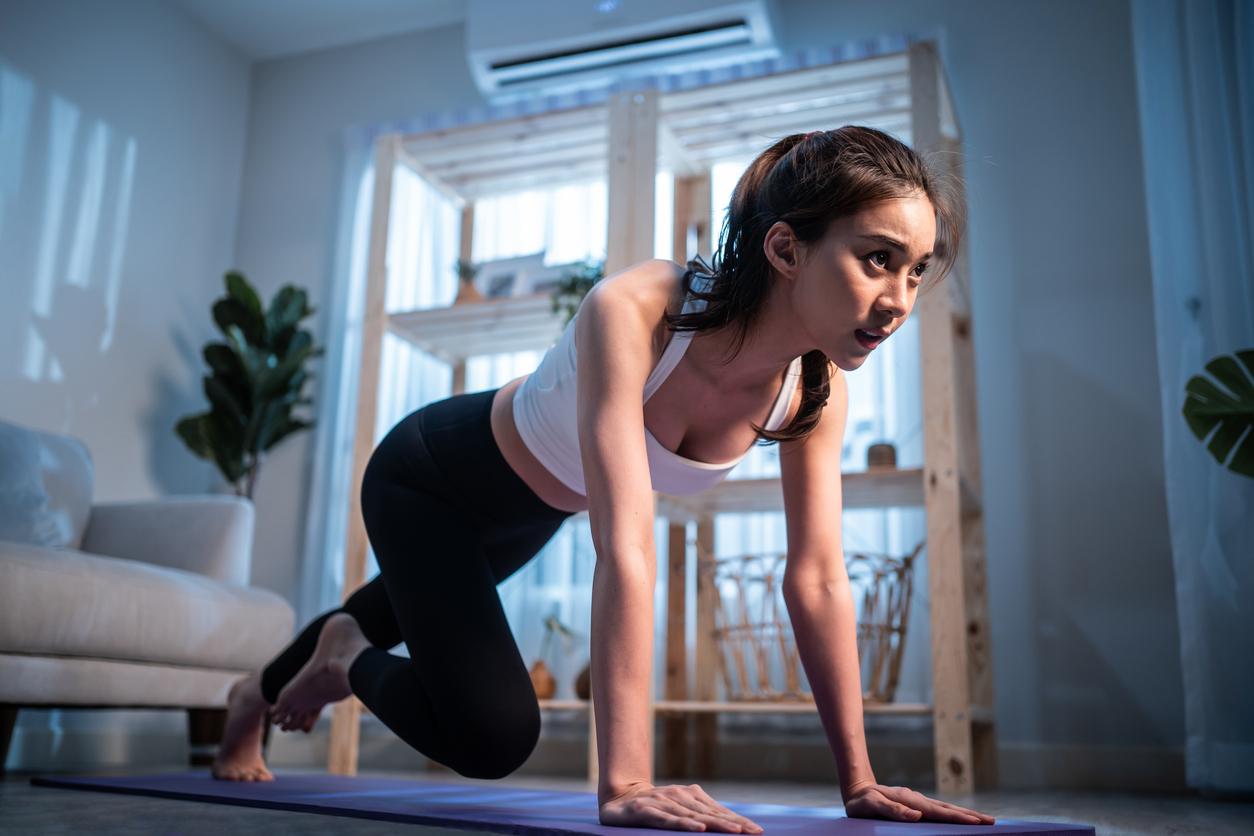Breaking up your evening sitting on the couch in front of the TV with three-minute resistance exercise breaks can improve your sleep duration.

- In one study, adults were asked to sit for four hours from 5:00 p.m. to 5:30 p.m. Six days later, they were asked to do squats, knee raises, and heel-to-butt raises for three minutes every 30 minutes over a four-hour period.
- After taking these physical activity breaks before going to bed, participants slept an average of 27 minutes longer, compared to prolonged sitting.
- “There was no significant effect on mean sleep efficiency and number of awakenings during the night between the two interventions.”
No physical activity before bed. That’s what current recommendations suggest. According to them, exercising before bed increases body temperature and heart rate, which doesn’t allow the body time to relax before lights out and can therefore lead to poorer sleep quality. However, researchers at the University of Otago in Dunedin, New Zealand, have shown that performing resistance exercise in the evening can help you get a good night’s sleep.
Squats, knee raises and heel-to-butt thrusts every 30 minutes for 4 hours
To reach this conclusion, the scientists conducted a study in which they recruited 28 people aged 18 to 40. The goal? To determine whether regular practice of three-minute resistance exercises spread over four hours in the evening has an impact on the quantity and quality of sleep, sedentary time and physical activity compared to prolonged and uninterrupted sitting.
For the purposes of the research, the team asked the participants, who all reported being sedentary for more than five hours during the day and two hours in the evening, to wear a device on their wrist that continuously measures their physical activity. They were also asked to record any physical activity when they were not wearing the tracker, such as swimming or contact sports, and to record activities known to be inaccurately identified by the tracker, such as cycling or yoga.
During the intervention, each volunteer underwent two four-hour sessions in a controlled laboratory environment on the same day of the week, starting at around 5:00 p.m. and 5:30 p.m. and separated by a minimum of six days. Specifically, the adults were first required to sit for four hours. In the second session, they performed three minutes of resistance exercises (squats, knee raises, heel-to-butt raises) every 30 minutes over a four-hour period. They then returned to their normal, real-world environment.
27 extra minutes of sleep after doing short exercises before bed
According to the results, published in the journal BMJ Open Sport & Exercise Medicinetracker data revealed that before the experiment, participants spent an average of seven hours and 47 minutes sleeping, 10 hours and 31 minutes sitting, and four hours and 55 minutes doing vigorous physical activity per day. Compared with prolonged sitting, regular resistance exercise breaks increased the average duration of the sleep period and time spent sleeping by 29.3 minutes and 27.7 minutes, respectively, on the night of the intervention.
According to the authors, the average sleep duration was seven hours and 12 minutes, compared with six hours and 45 minutes after prolonged sitting. Another finding: although the time at which participants tried to fall asleep was roughly the same, the average wake-up times differed. The volunteers woke up on average at 7:35 a.m. after sitting all evening and at 8:06 a.m. after short bouts of physical activity. “There was no significant effect on mean sleep efficiency and number of awakenings during the night between the two interventions,” can be read in the study.
“Physical activity breaks could reduce the risk of cardiometabolic disease”
“Adults accumulate the longest periods of sedentary time and consume nearly half of their daily energy intake during the evening, not to mention that insulin sensitivity is lower at this time. (…) By extending sleep duration, particularly in those who sleep less than the recommended duration, physical activity breaks could potentially reduce the risk of cardiometabolic disease in the long term,” concluded the authors, who now plan to explore the long-term impact of short periods of exercise in the evening on sleep.
















